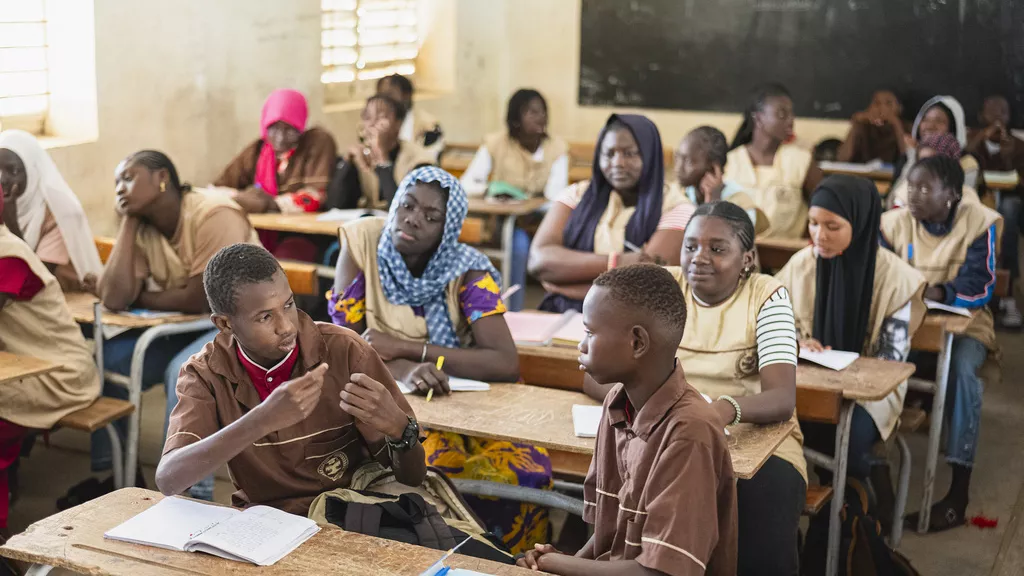Senegal’s Classroom Inclusivity: Deaf and Hard-of-Hearing Students Learn Alongside Peers
In certain schools across Senegal, a pioneering approach is being adopted: students who are deaf or hard of hearing are integrated into regular classrooms alongside their peers without disabilities. This innovative strategy aims to foster inclusivity and provide equal educational opportunities for all students.
At Apix Guinaw Rails Sud school in Dakar, Senegal’s capital, this inclusive model is being implemented with notable success. Mouhamed Sall, along with three other students, exemplifies the positive outcomes of this approach. Sall confidently approaches the chalkboard, communicating in sign language with an assistant before solving exercises to the silent admiration of his classmates. The atmosphere in the classroom is vibrant, with some students eagerly learning sign language to better interact with their deaf or hard of hearing peers.
This initiative is a significant step forward in a country where approximately 60% of children with disabilities do not attend school, according to UNICEF. The lack of comprehensive data and entrenched societal stigma further exacerbate the challenges faced by children with disabilities and their families. However, there are signs of progress, with Senegal beginning to develop a national strategy for inclusive education.
Despite political tensions and cultural barriers, attitudes towards disabilities are gradually shifting. Notable achievements, such as Senegal’s deaf football team winning the African championship and participating in the world championship, demonstrate the potential and capabilities of individuals with disabilities. Additionally, efforts to facilitate political participation and accessibility, such as providing election-related terms in sign language, reflect a growing commitment to inclusivity.
Organizations like Humanity and Inclusion are playing a pivotal role in promoting inclusive education by partnering with Senegal’s education ministry to establish mixed classes in public schools. These classes, which include students with and without disabilities, are supported by trained assistants proficient in sign language. The aim is to create an environment where all students can thrive equally, regardless of their abilities.
While there have been successes, challenges persist, particularly in terms of teacher training and financial support for families. Nevertheless, stakeholders remain optimistic about the potential for expansion and replication of inclusive education models nationwide. Collaboration between government ministries and civil society organizations is seen as crucial in providing holistic support for children with disabilities and ensuring their full integration into society.
For students like Mouhamed Sall, this inclusive education model offers not just academic opportunities but also a sense of belonging and acceptance among their peers. With continued support and advocacy, it is hoped that more children with disabilities in Senegal will have access to quality education and the chance to pursue their dreams.


















